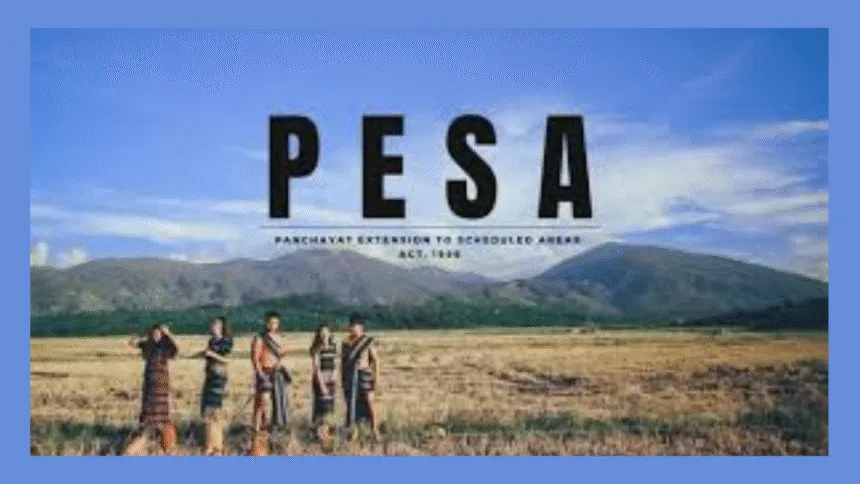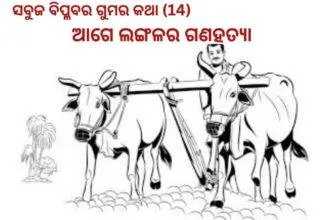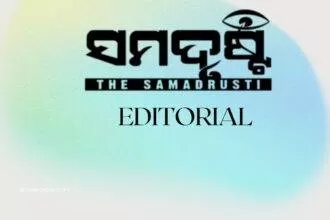It may be noted that the Panchayats Extension to Scheduled Areas Act was passed by Parliament in 1996 but the corresponding rules have not been notified. While there are other reasons as to why decentralisation is not taking place to the desired extent even in non-tribal areas of the country, the situation in tribal areas is particularly striking.
The Model Rules circulated by Ministry of Panchayati Raj[1] have several points of departure from the Act. For example, the Act does not envisage any concept of declaration of a village. But the model rule 4 mentions such declaration. A mere declaration of a habitation as a village by itself will not lead to any concrete economic opportunities. The Act mentions at Section 4 (b) that Gram Sabha would be competent to preserve and safeguard customary mode of dispute resolution. Rule 23 to 33 of the Model Rules prescribe a very elaborate procedure on this. Rule 23 (a) stipulates that the fundamental duty of the gram sabha is to maintain peace and order in its area, though no such fundamental duty is discernible from the Act. Further, in practice, the people have their own sysems and procedures to deal with various kinds of disputes. For example, a marital dispute may be referred to a group consisting elders of both the spouses. It may not be practical or desirable to have such matters dealt with by the committees of gram sabha. The Act requires customary mode of dispute resolution to be preserved by gram sabha. It does not require gram sabha to do the dispute resolution. The rules introduce peace committee, justice committee, peace and security corps, procedure to deal with allegations of sorcery, superstition etc. Similarly Section 4 (m) of the Act stipulates, “while endowing Panchayats in the Scheduled Areas with such powers and authority as may be necessary to enable them to function as institutions of self-government, a State Legislature shall ensure that the Panchayats at the appropriate level and the Gram Sabha are endowed specifically with— (i) the power to enforce prohibition or to regulate or restrict the sale and consumption of any intoxicant.” This clearly envisages work to be done by State legislature in bringing out or amending Excise Act. In contrast, the Rule 57 of the model rules says the Gram Sabha may give appropriate instructions to the owner of any factory manufacturing intoxicants of any type on matters related to the welfare of people, and also ask the Excise Department to intervene if it considers necessary. This appears to be clearly beyond the provisions of PESA, as it is for the State legislature to consider and bring appropriate law and not for the executive to do it by way of rules under PESA.
Considering the fact that over a period, many changes have occurred on the tribal landscape and some members of STs have moved ahead in terms of education and are working in various Government and private jobs, it may not be appropriate to categorise all tribal communities into a straitjacket. PESA recognises this and makes a brief legal stipulation consisting of only five sections. It leaves the finer details to be worked out at the gram sabha level in a decentralised manner, rather than being spelt out as a command from the top. It may be seen that the draft Model rules suggested by the central Government are quite elaborate, going to 81 in number. It is also seen that Odisha Government also placed draft[2] PESA Rules on public domain in 2023. It has been reported[3] that Governor has sought early finalisation of the PESA Rules. A view needs to be taken on whether a detailed elaboration in the Rules is desirable. We have to note the fact that a the whole framework of PESA has to be seen in the backdrop that not only in tribal areas but in other areas, there has been virtually no decentralisation of power and all political parties have been moving towards more and more centralised approaches. However, the issues addressed by PESA in terms of control on Jal, Jungle and Zameen continue to be of relevance to the lives of large sections of the tribals. Early notification of PESA rules is desireable, though it is not a panacea.
There has been a substantial intervention of extraction industries in Scheuled Areas in last few decades. Section 4 (l) of PESA mentions only minor minerals and not the major mines that would require prior recommendation of gram sabha or the panchayat at the appropriate level. The decline and disappearance of left wing extremists from these areas have not been accompanied by a genuine process of decentralisation or pro-poor developmental apparatus of the State or civil society getting more actively engaged in various aspects of social and economic development. Despite Samata judgement on benefit sharing and various mechanisms by the State Governments on usage of district mineral fund, a good deal of gap exists between the felt needs of the people and the developmental projects taken up with these funds. Meanwhile, funds available under various developmental schemes has substantially increased. Educated tribal youth are expressing higher aspirations and some of them have been voicing their opinions that the existing protective framework of law is not helping them, as no bank is giving them loans to set up any industry, as land is not accepted as collateral security. Similarly, there are growing demands from among sections of the tribals, seeking opening up of their areas for more participatory tourism projects and for better infrastructure like roads, educational institutions and health facilities. New regulatory mechanisms on MFP trade have come into operation through the bio-diversity boards, which are governed by central legislation. Recognising these developments, it may therefore be worthwhile to seek minimal operational details to be spelt out in the PESA rules, rather than attempting to prescribe micro details through elaborate bureucratic interpretations that could lead to legal hurdles. A brief set of operational rules would help the field functionaries implementng various developmental schemes in scheduled areas to work within the overall supervision of gram sabha, while following the laid down statutory functions as per respective laws or within the overall Government policy. Perhaps it may be desirable to seek oversight of gram sabha on tasks being performed by officials of various departments, like preventing or regulating tribal land alienation. Perhaps the legal part and the quasi-judicial work can continue to be done by officials; but the progress or general issues can be reported before the gram sabha or Panchayat at appropriate level and their observations can be taken on record by the implementing official mechanism. Similarly, executive instructions may be considered on regulating intoxicating liquor or customary dispute resolution, rather than opening up an empty competition for declaration of more hamlets as villages. It is to be noted that notification of PESA rules will have to be accompanied parallelly by different Government departments issuing appropriate executive instructions for strict compliance in scheduled areas by which different items of work, whether it is adjudication on tribal land alienation, or local liquor, or regulation of moneylending or dealing with MFP will be done systematically, in a PESA- compliant manner.
—-
[1] https://panchayat.gov.in/en/model-pesa-rules-circulated-by-mopr/
[2] https://panchayat.odisha.gov.in/sites/default/files/2023-11/25781.pdf
[3] https://www.newindianexpress.com/states/odisha/2025/May/03/governor-asks-odisha-government-to-form-taskforce-on-forest-rights-act-pesa
(The author is retired civil servant and known for his pro constitution views. He can be contacted at venugh@gmail.com )
Comments
0 comments








